Book Launch | ‘Revisiting the Durand Line: Historical and Legal Perspectives’
Mould-breaking book refutes Afghan narrative on Durand Line through historical evidence, international law
The Durand Line Agreement, international law, historical evidence, and the original maps exchanged at the time of the accord establish the present status of the Durand Line as an international border. As such, the Durand Line issue is political and geostrategic, and its status as an internationally recognized border is indisputable.
This was observed during the book launch of ‘Revisiting the Durand Line: Historical and Legal Perspectives,’ authored by Dr Lutfur Rehman. The event held on December 15, 2023 was co-organized by the Institute of Policy Studies (IPS) and the School of Politics and International Relations (SPIR), Quaid-i-Azam University (QAU), Islamabad.
The session was addressed by Khalid Rahman, chairman, IPS, Ambassador (r) Abrar Hussain, former ambassador to Afghanistan and vice chairman, IPS, Dr Zafar Nawaz Jaspal, director and professor SPIR, QAU, Dr Razia Sultana, member, Khyber Pakhtunkhwa Public Service Commission, and Dr Lutfur Rehman, while Faheemullah Khan, lecturer, SPIR, acted as moderator.
The speakers said the book dispels the misconceptions through evidence-based research. As further evidence, it also contains all the original maps exchanged in Kabul in November 1893 following the border agreement between the ruler of Afghanistan Ameer Abdur Rahman Khan and British Indian official Mortimer Durand.
Dr Lutfur Rehman debunked misconceptions about the Durand Line Agreement by centering his account on evidence and international law. Regarding one of the major misconceptions that the agreement was meant for one century and expired in 1993, he stated that it has no sunset clause. Article 2 of the agreement says: ‘The Government of India will at no time exercise interference in the territories lying beyond this line on the side of Afghanistan, and His Highness the Amir will at no time exercise interference in the territories lying beyond this line on the side of India.’
It is generally believed, even by scholars, that Ameer Abdur Rahman signed the treaty under ‘duress.’ The author clarified that the Ameer had himself requested the British government to demarcate the border and directly took part in concluding the agreement as he felt threatened by the continuous expansion of the British and Russian empires. However, after Pakistan’s independence in 1947, Afghanistan’s successive governments refused to recognize the Durand Line as an international boundary.
Furthermore, it is wrongly assumed that the border is not demarcated. In fact, it was demarcated by three commissions, i.e., the Baluch-Afghan Boundary Commission, the Afghan-Waziristan Boundary Commission, and the Asmar Boundary Commission. Hence, the entire border was demarcated, agreements were signed, and maps were exchanged.
He also emphasized that under international law, the treaties establishing boundaries enjoy ‘special status.’ Therefore, states are bound to accept the border they inherit from the colonial powers under the principle of uti possidetis, i.e. you possess, you shall continue to possess. Moreover, the Vienna Convention on Succession of States in respect of Treaties 1978 says that “states that emerged after the dismemberment of a federation or union, take over the agreement responsibilities of the former union.”
Dr Zafar Jaspal said that the Durand Line issue has been misinterpreted repeatedly, and such misconstrued claims should be resolved for good neighborly relations.
The whole dilemma is political and geostrategic where the persistent irritancies and rivalry have proven no good to any state, said Dr Razia Sultana. She further stated that the Durand Line is not a valid historical problem but rather an issue of division of an ethnic group, i.e. Pakhtoons. This is not a strong point as Pakhtoons are very much integrated into Pakistan’s political, economic, and military life.
Ambassador Abrar Hussain said that successive Afghan governments have developed the rhetoric on Durand line for political gains but have never taken it to an international forum. This is because of the lack of evidence behind their narrative. Pakistan does not bring up the matter in the interest of mutual relations and because it considers the Durand Line an international boundary and a settled issue.
Khalid Rahman emphasized that resolving bilateral issues benefits Pakistan, Afghanistan, and their respective populations. He further said this border controversy suits external and internal actors who do not want Pak-Afghan relations to flourish. He pinpointed the prevalence of misinformation as a significant hurdle, hampering genuine research efforts. Rahman stressed the critical need to shift focus towards indigenous perspectives, urging scholars and academia to collaborate closely with research organizations to enhance the quality and authenticity of research endeavors.



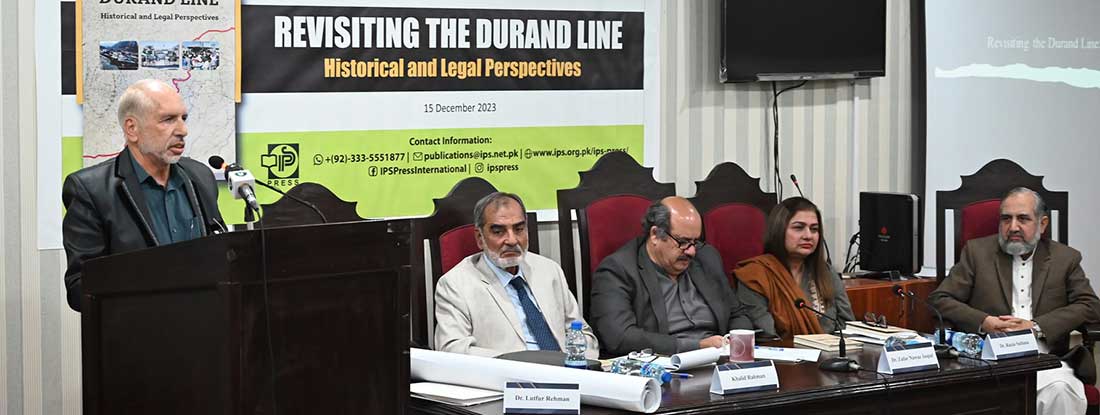
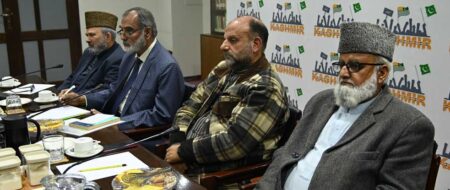
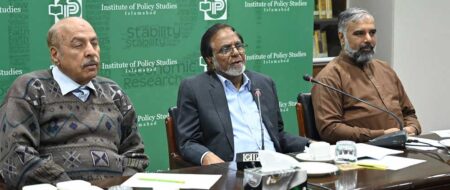

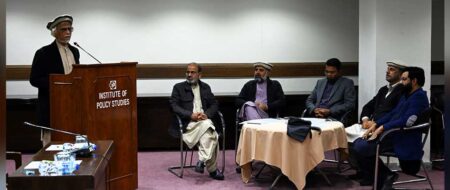
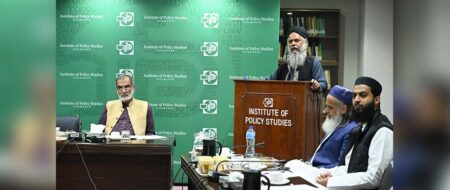
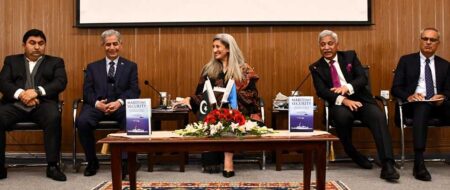



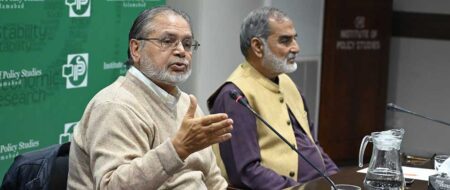
Comment (1)
Great effort. It will be important tool to teach young generation
Comments are closed.